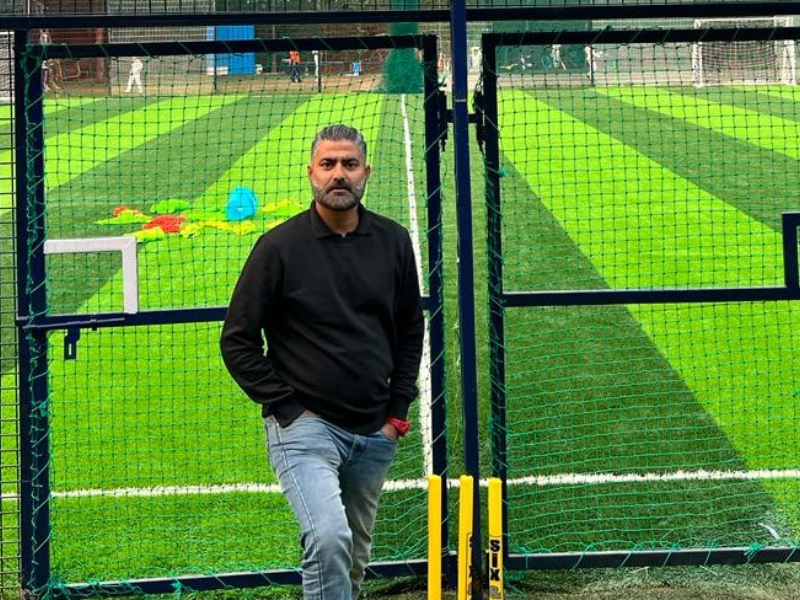Puru Singh, Founder, Push Sports
Recalling his early years in his autobiography “My Life”, legendary basketball player Earvin “Magic” Johnson says his stint during his senior school years at a predominantly white school, where he was part of the basketball team, was probably the best thing that ever happened to him. Ignored by his team-mates even during practice to the extent that they wouldn’t even pass the ball to him, Johnson says that his years there taught him “how to understand white people, how to communicate and deal with them.” 
That life skill could have only come from a basketball court amidst a sea of racism that Johnson experienced as a student and not from any other field. This dictum is as true for basketball as it is for any other sport, as the lessons learnt on the field linger on forever even off the field. Which is why sports need to be an integral part of school curriculum – rather than confined to one or two 45-minute classes in a week – when young minds can be influenced in the right manner. It thus may be a better idea to have a dedicated sports class on a daily basis, which could either start off an hour before the academic classes commence or after the school gets over – since 10-15 minutes are usually consumed in the setting up for sports practice.
Moreover, sports classes in schools are usually under the charge of a physical education teacher who’s more of an academic than a person with real-life experience in a sporting arena. Only someone who’s actually played a sport at a competitive level, if not internationally at least nationally, will be able to impart life skill lessons to students. That’s why it’s imperative that schools invest in appointing specialist coaches for specific sport disciplines. Just as an English teacher can’t teach algebra or trigonometry, a swimming coach can’t coach a football team.
In fact, one is not discounting the importance of academics for sportspersons. In the US for instance, athletes in a school or college team have to maintain a minimum grade point average (GPA) in their academics to ensure they continue being part of the team or else they are benched, with coaches working in tandem with their fellow teachers in academic disciplines to ensure that star athletes understand that sports and academics are not mutually exclusive.
A similar model could also be adopted here in India to ensure students playing for school or varsity teams maintain a minimum level of academic grades, with students who are part of school sports teams made aware of what minimum grades they need to maintain in their academic subjects if they want to continue playing on the school team, or else they risk being benched till their grades improve.
Abhinav Bindra, India’s first individual gold medallist, when he won the coveted medal at the 2008 Beijing Olympics, has stressed on the importance of teaching life-skills to sportspersons like it’s mandatory in the US even for top athletes as “none out of 10 athletes will actually fail.” Knowing a life skill can be the difference between making a decent living and living in penury – examples of which abound in India.
The most obvious spillover benefit from any sport – and one says that consciously, any sport – is how to be a team player even while working at individual excellence. The notion that only team sports such as hockey, football or cricket teach team spirit is doing a great disservice to sports like tennis or golf where there’s a whole support team, including a coach, an agent and, but not limited to, a physiotherapist which makes sure that the Rafale Nadals and Novak Djokovics of the world keep winning Grand Slam after Grand Slam.
Conversely, even in team sports, the quest for individual excellence is always there but individual glory is of little solace to a team if it ends up on the losing side. Michael Jordan, undeniably the greatest hoopster the world has ever seen whose popularity transcended geographical boundaries, was already a star in the 1980s with several individual accolades but no championship win. That came about only when he teamed up with other all-time greats like Scottie Pippen Sr, Horace Grant and Phil Jackson which led to the first of several championship victories in the 1990-91 season.
Perhaps fittingly, it was Jordan only who said that “If you think and achieve as a team, the individual accolades will take care of themselves. Talent wins games, but teamwork and intelligence win championships.’ Which also explains why in two back-to-back Olympics, in 1992 and 1996, the US dominated basketball like no other nation despite the presence of several stalwarts other than Johnson, Jordan and Pippen, which included Larry Bird (1992) Shaquille O’Neal and Karl Malone (1996), who played like a team for a nation.
Sports also teaches humility, grace and acceptance because no sportsperson will possibly end his/her career with an all-win record. Even Balbir Singh Dosanjh, the greatest centre- forward the sport of hockey has ever seen, ended up missing out on the gold medal at the 1958 Tokyo Asian Games.
In 2006, when South Africa beat Australia with one ball to spare in their fifth ODI, Ricky Ponting and Herschelle Gibbs were declared joint recipients of the Man of the Match award for their scintillating centuries. However, Ponting, normally an aggressive on-field player, was all grace when he declined and said the award should only go to Gibbs.
That’s sport – and that’s life.
Also Read: A guide for engineering students considering studying abroad























